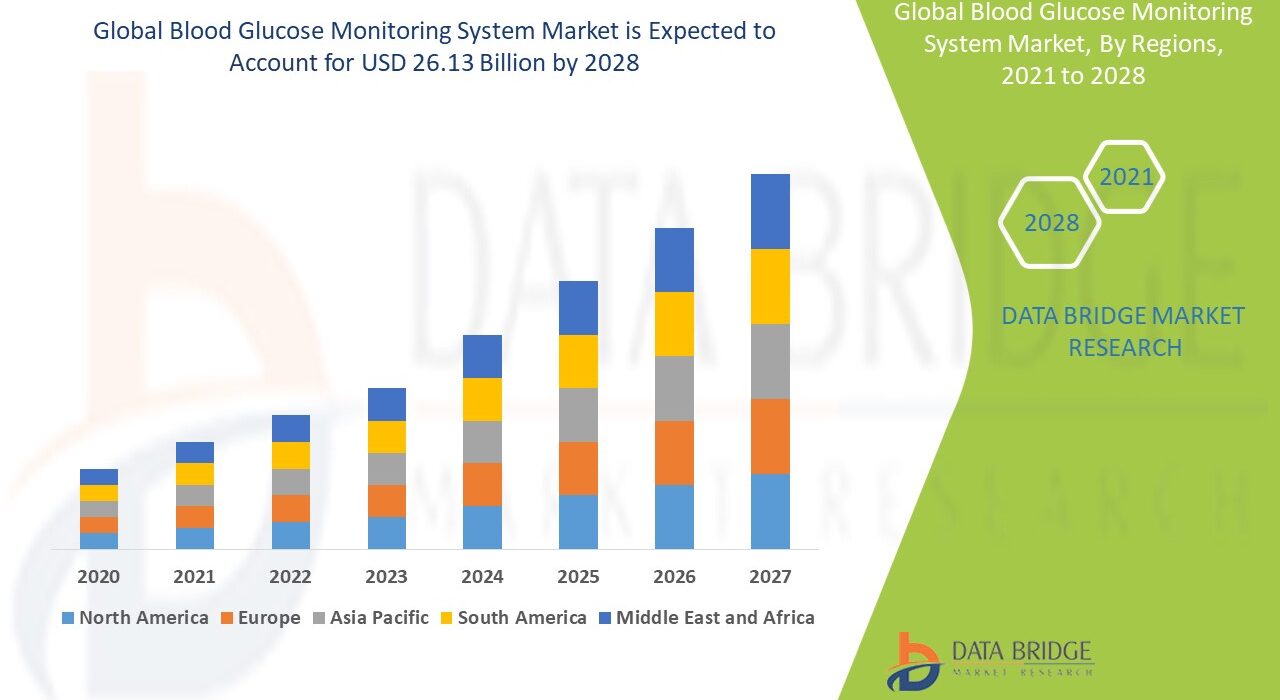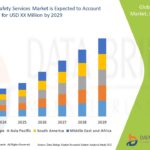Introduction
The Blood Glucose Monitoring System Market focuses on devices and technologies that enable continuous or point-in-time measurement of blood sugar levels, helping individuals and healthcare providers manage diabetes effectively. These systems are essential for both Type 1 and Type 2 diabetic patients, as they provide actionable data for medication, diet, and lifestyle adjustments.
The market has witnessed remarkable technological advancements, transitioning from traditional finger-prick testing to continuous glucose monitoring (CGM) and smart wearable sensors. Integration with smartphones, IoT, and cloud-based analytics platforms has further enhanced real-time monitoring, personalized insights, and data-driven treatment plans.
Get More Details : https://www.databridgemarketresearch.com/reports/global-blood-glucose-monitoring-system-market
Market Size and Growth Projections
The global Blood Glucose Monitoring System Market was valued at USD XX billion in 2024 and is expected to reach USD XX billion by 2032, growing at a CAGR of XX% during the forecast period. The rising prevalence of diabetes, increasing health awareness, and growing adoption of connected health technologies are major growth drivers.
Key Growth Factors:
-
Increasing global prevalence of diabetes and obesity.
-
Rising demand for minimally invasive and continuous monitoring devices.
-
Growing adoption of smartphone-connected glucose meters and wearable sensors.
-
Technological innovations in CGM and insulin integration.
-
Favorable reimbursement policies and government initiatives promoting early diagnosis.
Market Segmentation
By Product Type
-
Self-Monitoring Blood Glucose (SMBG) Devices
-
Continuous Glucose Monitoring (CGM) Devices
-
Lancets and Test Strips
By Component
-
Glucose Meters
-
Sensors
-
Transmitters
-
Test Strips
-
Software and Apps
By Technology
-
Invasive
-
Minimally Invasive
-
Non-Invasive
By End User
-
Hospitals & Clinics
-
Home Care Settings
-
Diagnostic Centers
-
Research Institutions
By Distribution Channel
-
Retail Pharmacies
-
Online Pharmacies
-
Hospital Pharmacies
Regional Insights
North America:
Holds the largest market share due to high diabetes prevalence, advanced healthcare infrastructure, and strong presence of key players offering innovative glucose monitoring devices. The U.S. remains a major contributor driven by rapid adoption of CGM and smart insulin management technologies.
Europe:
Strong growth supported by government healthcare initiatives, rising diabetic population, and increasing use of digital health solutions for chronic disease management. Germany, France, and the UK are leading markets in this region.
Asia-Pacific:
Expected to exhibit the fastest growth, fueled by increasing awareness of diabetes management, growing middle-class income, and expanding healthcare access in countries such as China, India, and Japan.
Latin America:
Emerging market opportunities driven by growing public health campaigns, diabetes screening programs, and rising healthcare expenditure in Brazil and Mexico.
Middle East & Africa:
Gradual market expansion supported by lifestyle-related diabetes cases, healthcare modernization, and growing adoption of point-of-care diagnostic devices.
Key Market Drivers
-
Rising Diabetes Prevalence: Increasing number of diabetic and pre-diabetic individuals globally.
-
Technological Advancements: Smart, real-time monitoring systems with AI and IoT integration.
-
Preventive Healthcare Focus: Growing awareness regarding early diagnosis and glycemic control.
-
Remote Patient Monitoring: Surge in telemedicine and home-based glucose tracking.
-
Favorable Reimbursement Policies: Government and insurance coverage supporting glucose monitoring devices.
Market Challenges and Restraints
-
High Device Costs: Advanced CGM systems may remain unaffordable in low-income regions.
-
Calibration and Accuracy Issues: Device reliability and sensor lifespan limitations.
-
Data Privacy Concerns: Risks associated with digital health data sharing and storage.
-
Limited Awareness: Particularly in developing countries where diabetes often remains undiagnosed.
-
Regulatory Hurdles: Complex approval processes for innovative and non-invasive technologies.
Competitive Landscape
The Blood Glucose Monitoring System Market is competitive and technology-driven, with companies focusing on innovation, AI-based analytics, and patient convenience.
Key Companies:
-
Abbott Laboratories
-
F. Hoffmann-La Roche Ltd
-
Dexcom, Inc.
-
Medtronic plc
-
Ascensia Diabetes Care Holdings AG
-
LifeScan, Inc.
-
Ypsomed AG
-
Senseonics Holdings, Inc.
-
AgaMatrix, Inc.
-
B. Braun Melsungen AG
Strategic Developments:
-
Launch of next-generation CGM systems with real-time connectivity.
-
Partnerships between healthcare providers and digital platforms for remote diabetes monitoring.
-
Integration of AI-driven analytics for predictive glucose level management.
-
Expansion into wearable and non-invasive glucose detection technologies.
-
Focus on emerging markets through cost-effective device solutions.
Technological Innovations
-
AI-Powered Glucose Prediction: Machine learning algorithms forecasting glucose trends.
-
Smart Wearable Sensors: Continuous tracking through non-invasive patches and wristbands.
-
Integrated Diabetes Management Platforms: Seamless data exchange with insulin pumps and smartphones.
-
Cloud-Based Monitoring: Real-time data sharing with physicians and caregivers.
-
Non-Invasive Optical Sensors: Emerging tech for painless and continuous monitoring.
SWOT Analysis
| Strengths | Weaknesses | Opportunities | Threats |
|---|---|---|---|
| Advanced monitoring technology improving diabetes care | High device cost and maintenance | Growing demand for connected health devices | Intense competition and pricing pressure |
| Integration with AI and smartphone platforms | Calibration and accuracy challenges | Expansion in emerging economies | Regulatory compliance complexity |
| Rising adoption in home care settings | Limited awareness in developing regions | Innovations in non-invasive monitoring | Data security and privacy concerns |
Future Market Outlook
The Blood Glucose Monitoring System Market is expected to evolve toward personalized, predictive, and preventive healthcare. Increasing integration of AI, IoT, and cloud technologies will make glucose monitoring more accurate, accessible, and user-friendly. As wearable and non-invasive devices gain traction, diabetes management will shift from reactive treatment to proactive wellness tracking.
Growing collaborations between tech companies, healthcare providers, and medical device manufacturers will drive innovation and affordability, especially in developing markets. The next decade will witness a transition toward holistic digital diabetes ecosystems offering real-time health insights and improved patient outcomes.
Conclusion
The Blood Glucose Monitoring System Market is a cornerstone of modern diabetes care, empowering patients with real-time data, precision insights, and greater control over their health. As technology continues to evolve, next-generation glucose monitoring systems will redefine chronic disease management, blending connectivity, accuracy, and patient comfort. Continuous innovation and affordability will be key to making these life-saving technologies accessible across global healthcare landscapes.
Get More Reports :
https://www.databridgemarketresearch.com/reports/global-meditation-market
https://www.databridgemarketresearch.com/reports/global-shampoo-market
https://www.databridgemarketresearch.com/reports/global-lidar-market
https://www.databridgemarketresearch.com/reports/global-biomaterials-market
https://www.databridgemarketresearch.com/reports/global-dermatology-devices-market





